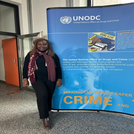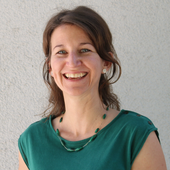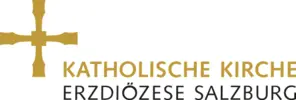One World Scholarship
Who can apply?
Students from Africa, Asia, the Near and Middle East, Oceania, the Caribbean, or Latin America who are interested in sustainability and/or social justice and who have come to Austria to study on their own initiative.
What does the scholarship program offer?
- Financial support through a partial scholarship: Master's students receive € 500 per month during the semester, PhD students receive € 550 per month during the semester.
- Personal support
- Varied educational programme with workshops, excursions and social activities
- Raising awareness of global challenges: Encouragement, support, meeting and sharing experiences with alumni, visualising opportunities to initiate change!
- Worldwide alumni network
What do we expect?
- Financial need
- Good academic success
- Interest in and commitment to the field of sustainable development as well as a focus on a relevant field during your studies
- Compulsory participation in events within the framework of study-accompanying education and willingness to get actively involved in the Institute's offers.
Formal requirements
- Citizenship of a country in the Global South (see FAQ).
- Admission to a regular Master's or PhD program at a public university or university of applied sciences in Salzburg and Tyrol (Uni Salzburg, Uni Innsbruck, FH Salzburg, MCI, FH Kufstein).
- For PhD students: Confirmation of supervision
- for Joint-Master only possible by arrangement (no guarantee)
- Maximum age when applying: for Master's studies 30 years (mothers 35 years), for doctoral studies 35 years (mothers 40 years)
- Residence permit "student" or student visa
No Scholarships are awarded
- studies at private universities
- postgraduate study programmes ("Lehrgänge", e.g. "Universitätslehrgang" or "Fachhochschullehrgang") or other non-degree certificate programmes
- blended learning/distance learning study courses without compulsory attendance in Austria
- applicants with a residence title other than “student”
- non-degree programme students („außerordentliche Studierende“)
- short term visits and exchange programmes
A special case are Joint Master Programmes. Depending on different parameter some are eligible, while others are not. Please contact us beforehand to assess whether your programme is eligible.
Note:
Regarding applications from equally qualified individuals, priority is given to female students.

"Apart from the great financial support the most important part is that we attend very interesting conferences and events we can attend and have the opportunity to make contacts that make contacts that help you to integrate better and integrate better and prepare for better career opportunities after graduation."
Requirements for a successful application
- Financial need
We consider own income, savings, other means of support, profession and income of parents in order to select students who would hardly be able to successfully finish their studies without financial support.
- Evidence of good progress in studies
Good study progress documented by transcript of records of current and past studies. In programmes without entry exams, students who have already completed at least one semester at an Austrian university have a distinctive advantage.
- Interest in development and according specialisation in studies
Prospective awardees are expected to show a strong interest in development related issues, which is supposed to be reflected in the choice of study fields, prior work experience, voluntary activities etc. In this context, our understanding of "development" does not draw from Eurocentric, modernist ideas that see Western societies as norm for African, Asian or Latin American societies. Rather, we are aware of post- and neo-colonial responsibilities and thus see in development related interests the claims to - by including Southern perspectives - contribute to more global justice as well as ecological, social and economic sustainability.
Possible fields of specialisation are poverty reduction, social justice, global migrations, gender equality, climate change, sustainable use of resources, food security, renewable energies, environmental protection, sustainable tourism, urbanisation, health, human rights, democratisation, good governance, fighting corruption, conflict prevention and resolution, international relations, intercultural dialogue. This list should provide applicants with an idea of relevant topics, it is, however, not exclusive.

Astrid Schönleitner, Study and Counselling Manager
Wiener-Philharmoniker-Gasse 2
